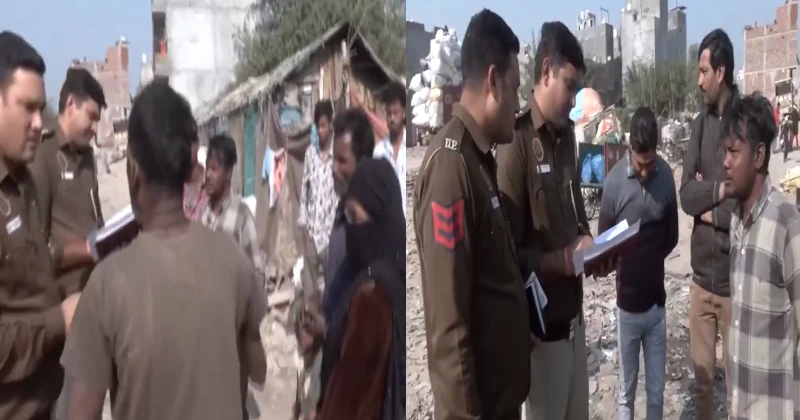
Following a directive from Delhi’s Lieutenant Governor V K Saxena, the Delhi Police launched an extensive operation to identify and deport illegal Bangladeshi and Rohingya immigrants residing in the capital. This crackdown comes after concerns were raised about the growing presence of illegal immigrants in the city, particularly in areas with large slum populations, unauthorized colonies, and settlements. The action follows a directive from the Lieutenant Governor, who ordered the Delhi Police Commissioner to take “strict action” against the infiltration of illegal migrants, specifically targeting individuals from Bangladesh and Myanmar.
Saxena’s order came a day after a meeting between a delegation of ulemas (Muslim clerics) and leaders from Hazrat Nizamuddin, where concerns were raised about the impact of illegal immigration on the city’s security, economy, and social fabric. The police operation has been meticulously planned and executed across multiple hotspots in Delhi, such as Kalindi Kunj, Uttam Nagar, Shaheen Bagh, Jamia Nagar, and Seelampur. These areas, known for their high concentration of unauthorised colonies and slums, have long been suspected of harboring large numbers of illegal migrants, including Bangladeshis and Rohingyas.

On December 11, police teams began inspecting residential documents and verifying the identities of individuals, particularly in areas like Kalindi Kunj and Uttam Nagar. The authorities focused on checking voter IDs, Aadhaar cards, and other identification documents, scrutinizing whether they were genuine or had been fraudulently acquired. A senior police official remarked, “Some of the individuals without proper documentation were brought in for questioning.
If their status as illegal immigrants is confirmed, they will be deported.” The drive, described as a routine exercise, involves cross-verifying documents, including those from Assam and other neighboring regions suspected to have been manipulated. The second day of the operation saw a major crackdown in Seemapuri, East Delhi, where police collected documents from 32 individuals residing in the E-44 Jhuggis (slums) of New Seemapuri.
The area has been flagged as a hotspot for illegal immigrants, and authorities are determined to eliminate the presence of those residing without valid documentation. Police Deputy Commissioner Prashant Gautam emphasized the seriousness of the drive, stating, “This operation marks a decisive step in curbing the rising number of illegal migrants in the capital.” The operation’s focus on Seelampuri and surrounding areas highlights the deep-rooted issues surrounding illegal immigration, with authorities promising stricter action in the weeks to come.
“Locals have been warned against using fake identity cards, and this drive is entirely focused on identifying and deporting unauthorised intruders,” the DCP said. Stringent Measures and Consequences The two-month long special drive, sanctioned by the Delhi LG Secretariat, will not only involve document checks but also the collection of personal data, such as Aadhaar card numbers and voter IDs of suspected individuals. All collected data will be forwarded to the Foreigners Regional Registration Office (FRRO) for verification.
If any discrepancies are found, individuals will be sent to detention centers pending the completion of legal processes. Authorities are also going beyond just document verification; police teams are investigating whether the individuals are involved in criminal activities by cross-referencing police records. This marks a comprehensive approach, with police targeting both the root causes of illegal immigration and the associated risks of criminality.
In a statement, a senior police officer mentioned that some individuals from the verification drives may eventually face deportation after thorough legal proceedings. “This is part of a wider operation to ensure the city remains secure and law-abiding,” the officer asserted..











